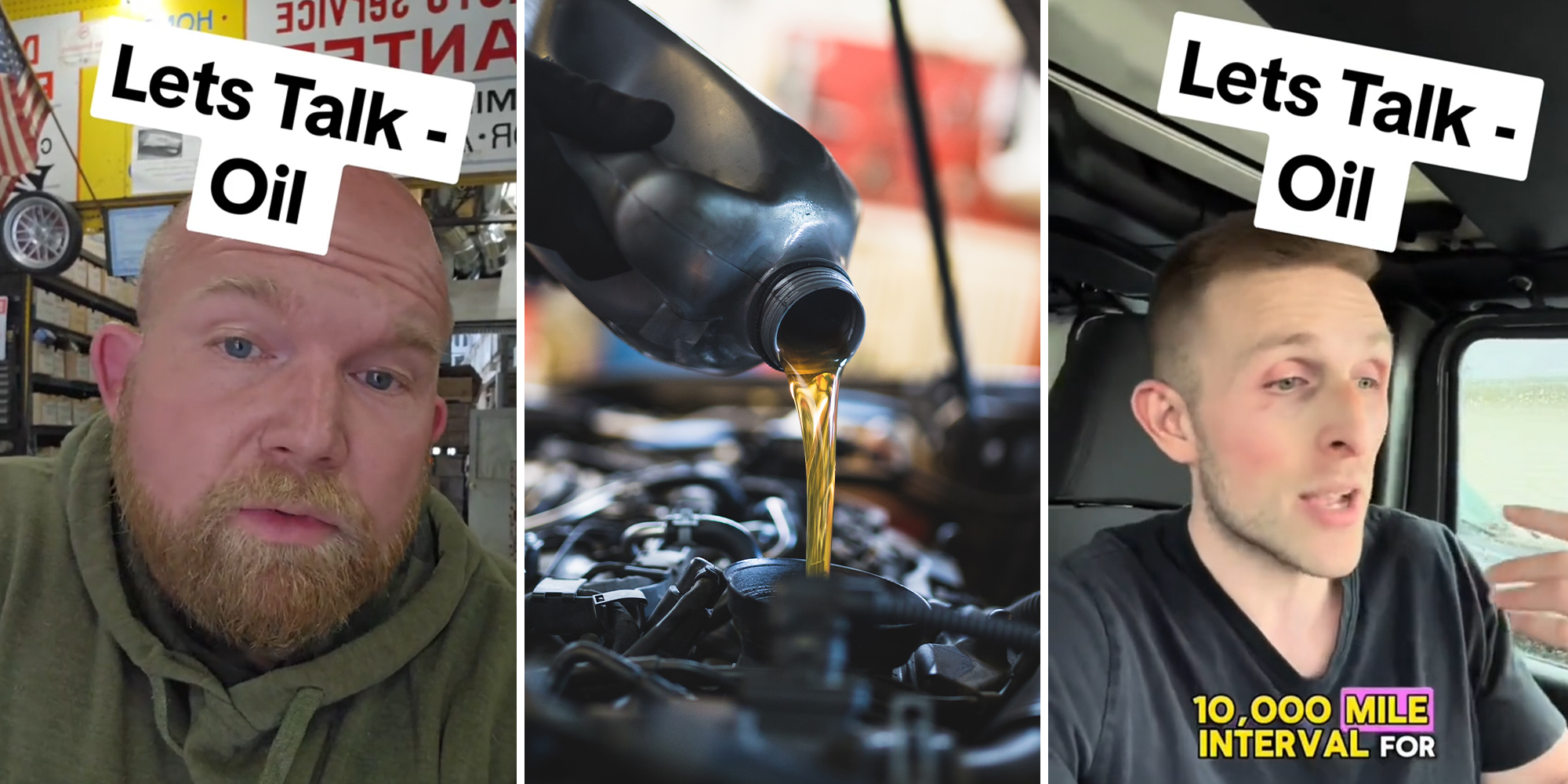Oil is vital to engines. According to boldmethod.com, it lubricates, preventing wear and tear, regulates the engine's temperature, and removes contaminants. Regular oil changes will extend the life of an engine, and if properly maintained, a vehicle can last for decades.
Made up of a base oil and additives, according to the Universal Technical Institute, engine oil is comprised of 70-90 percent base oils and 10-30 percent additives. These additives act as detergents, antioxidants, and corrosion inhibitors. Over time, manufacturers have learned to chemically engineer oil to be uniform and have fewer impurities, which raised oil change intervals from every 3,000 miles to every 7,500 to 10,000 miles.
According to Consumer Reports, oil loses its effectiveness as it ages, and even if a car has not been used for a long time, owners should change their oil at least twice a year. Recently, a mechanic pushed back on the suggested length between oil changes, claiming that manufacturers were deliberately misleading their customers.
TikToker Rich (@fordbossme) continues his streak of viral videos with an in-depth explanation of why car owners should ignore the recommended length between oil changes. The video has been viewed over 58,000 times as of publication.
"Although there's nothing wrong with following the manufacturer's interval if you're just worried about getting your vehicle through the warranty period, it will do some damage to the car," Rich began.
Rich, a manufacturer-trained mechanic who worked for a dealership before opening his own business, claims that "the 10,000-mile oil change interval is rubbish." According to him, waiting the recommended interval causes oil to wear out, gunk to build up, and risks carbon getting down in the oil. He says these issues can age a car prematurely, wearing out an engine that could otherwise last for decades. However, Rich claims the worst part is that these issues aren't by accident.
"It's called planned obsolesce," he said. "They know what they're doing. The government's in on it; the manufacturers are in on it; it benefits both of them."
According to Rich, car owners' misconceptions also contribute to the deception. "How did they get away with such high mileage? Well, a lot of people think oils go inside the engine and they clean like scrubbing bubbles, and that's not how it works," he says.
Additives, he explains, act as dispersants and detergents and can keep problems from escalating. However, Rich says when the oil begins to wear out, contaminants cling to the engine, which means that the longer a car owner waits to change their oil, the more gunk will accumulate.
Contrary to manufacturer suggestions, Rich advises people to get their oil changed "every 4-5,000 miles" to maintain "a super clean, really, really great-running engine."
"The warranty guidelines are only to get you out of warranty, so they don't have to pay for any repairs that need to be done in the future of some kind of failure," Rich warned.
@fordbossme #stitch with @Chris_MF_Craig Maintenance and Oil Talk - Manufacturers Plannes obsolescence
♬ original sound - Chris_MF_Craig
Viewers appreciated his honest assessment, and many agreed with his suggestion.
"I'm a mechanic for UPS. They just put us to 10,000 engine oil changes to 'save money'. We're gonna be changing engines instead of oil soon. lol," one said.
"Toyota tells me every 10'000 miles I change mine every 5,000," a second agreed.
"3500 no more," a third added.
The Daily Dot reached out to Rich via TikTok comments for more information.
The internet is chaotic—but we'll break it down for you in one daily email. Sign up for the Daily Dot's web_crawlr newsletter here to get the best (and worst) of the internet straight into your inbox.






